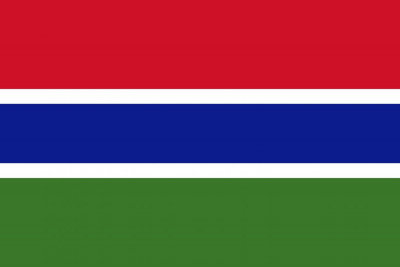Maldives (, US: ; Dhivehi: , romanized: Dhivehi Raajje, Dhivehi pronunciation: [diehi adde]), officially the Republic of Maldives (Dhivehi: , romanized: Dhivehi Raajjeyge Jumhooriyyaa, Dhivehi pronunciation: [diehi addege dumhuijja]), is an archipelagic state located in Southern Asia, situated in the Indian Ocean. It lies southwest of Sri Lanka and India, about 750 kilometres (470 miles; 400 nautical miles) from the Asian continent's mainland. The chain of 26 atolls stretches from Ihavandhippolhu Atoll in the north to Addu Atoll in the south (across the Equator).
Comprising a territory spanning roughly 90,000 square kilometres (35,000 sq mi) including the sea, land area of all the islands comprises 298 square kilometres (115 sq mi), Maldives is one of the world's most geographically dispersed sovereign states and the smallest Asian country as well as one of the smallest Muslim-majority countries by land area and, with around 557,751 inhabitants, the 2nd least populous country in Asia. Mal is the capital and the most populated city, traditionally called the "King's Island" where the ancient royal dynasties ruled for its central location.The Maldivian Archipelago is located on the ChagosLaccadive Ridge, a vast submarine mountain range in the Indian Ocean; this also forms a terrestrial ecoregion, together with the Chagos Archipelago and Lakshadweep. With an average ground-level elevation of 1.5 metres (4 ft 11 in) above sea level, and a highest natural point of only 2.4 meters, it is the world's lowest-lying country. (Note that some sources state the highest point, Mount Villingili, as 5.1 meters)In the 12th century Islam reached the Maldivian Archipelago, which was consolidated as a sultanate, developing strong commercial and cultural ties with Asia and Africa. From the mid-16th century, the region came under the increasing influence of European colonial powers, with Maldives becoming a British protectorate in 1887. Independence from the United Kingdom came in 1965, and a presidential republic was established in 1968 with an elected People's Majlis. The ensuing decades have seen political instability, efforts at democratic reform, and environmental challenges posed by climate change and rising sea levels.Maldives became a founding member of the South Asian Association for Regional Cooperation (SAARC). It is also a member of the United Nations, the Commonwealth of Nations, the Organisation of Islamic Cooperation, and the Non-Aligned Movement. The World Bank classifies the Maldives as having an upper-middle income economy. Fishing has historically been the dominant economic activity, and remains the largest sector by far, followed by the rapidly growing tourism industry. The Maldives rates "high" on the Human Development Index, with per capita income significantly higher than other SAARC nations.Maldives was a member of the Commonwealth of Nations from July 1982 until withdrawing from the organisation in October 2016 in protest of allegations by other nations of its human rights abuses and failing democracy. Maldives rejoined the Commonwealth on 1 February 2020 after showing evidence of functioning democratic processes and popular support.
The Gambia, officially the Republic of The Gambia, is a country in West Africa. It is the smallest country within mainland Africa and is surrounded by Senegal, except for its western coast on the Atlantic Ocean. The Gambia is situated on both sides of the lower reaches of the Gambia River, the nation's namesake, which flows through the centre of the Gambia and empties into the Atlantic Ocean. It has an area of 10,689 square kilometres (4,127 sq mi) with a population of 1,857,181 as of the April 2013 census. Banjul is the Gambian capital and the country's largest metropolitan area. The largest cities are Serekunda and Brikama.The Portuguese in 1455 entered the Gambian region, the first Europeans to do so, but never established important trade there. In 1765, The Gambia was made a part of the British Empire by establishment of the Gambia Colony and Protectorate. In 1965, the Gambia gained independence under the leadership of Dawda Jawara, who ruled until Yahya Jammeh seized power in a bloodless 1994 coup. Adama Barrow became the Gambia's third president in January 2017, after defeating Jammeh in the December 2016 elections. Jammeh initially accepted the results, then refused to accept them, which triggered a constitutional crisis and military intervention by the Economic Community of West African States, resulting in his exile.The Gambia's economy is dominated by farming, fishing, and especially, tourism. In 2015, 48.6% of the population lived in poverty. In rural areas, poverty is even more widespread, at almost 70%.

1965Sep, 21
The Gambia, Maldives and Singapore are admitted as members of the United Nations.
Choose Another Date
Events on 1965
- 8Mar
Vietnam War
Thirty-five hundred United States Marines are the first American land combat forces committed during the Vietnam War. - 15Mar
Voting Rights Act
President Lyndon B. Johnson, responding to the Selma crisis, tells U.S. Congress "We shall overcome" while advocating the Voting Rights Act. - 6Aug
Voting Rights Act of 1965
US President Lyndon B. Johnson signs the Voting Rights Act of 1965 into law. - 27Nov
Lyndon B. Johnson
Vietnam War: The Pentagon tells U.S. President Lyndon B. Johnson that if planned operations are to succeed, the number of American troops in Vietnam has to be increased from 120,000 to 400,000. - 28Nov
Ferdinand Marcos
Vietnam War: In response to U.S. President Lyndon B. Johnson's call for "more flags" in Vietnam, Philippine President-elect Ferdinand Marcos announces he will send troops to help fight in South Vietnam.

 English
English  español
español  français
français  português
português  русский
русский  العربية
العربية  简体中文
简体中文 